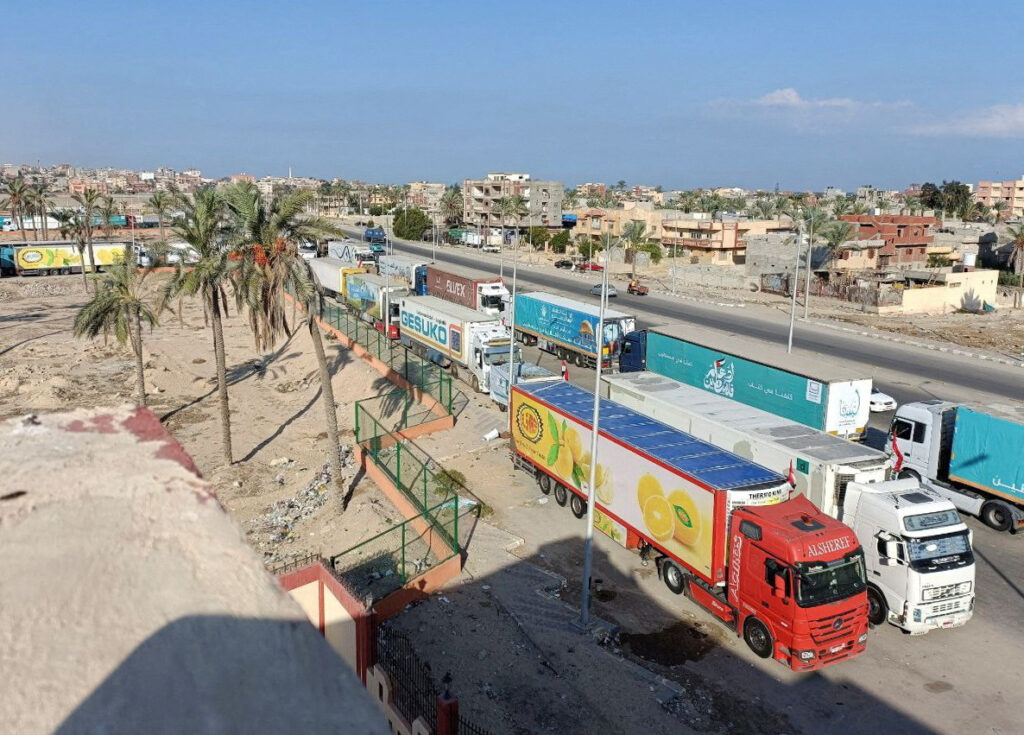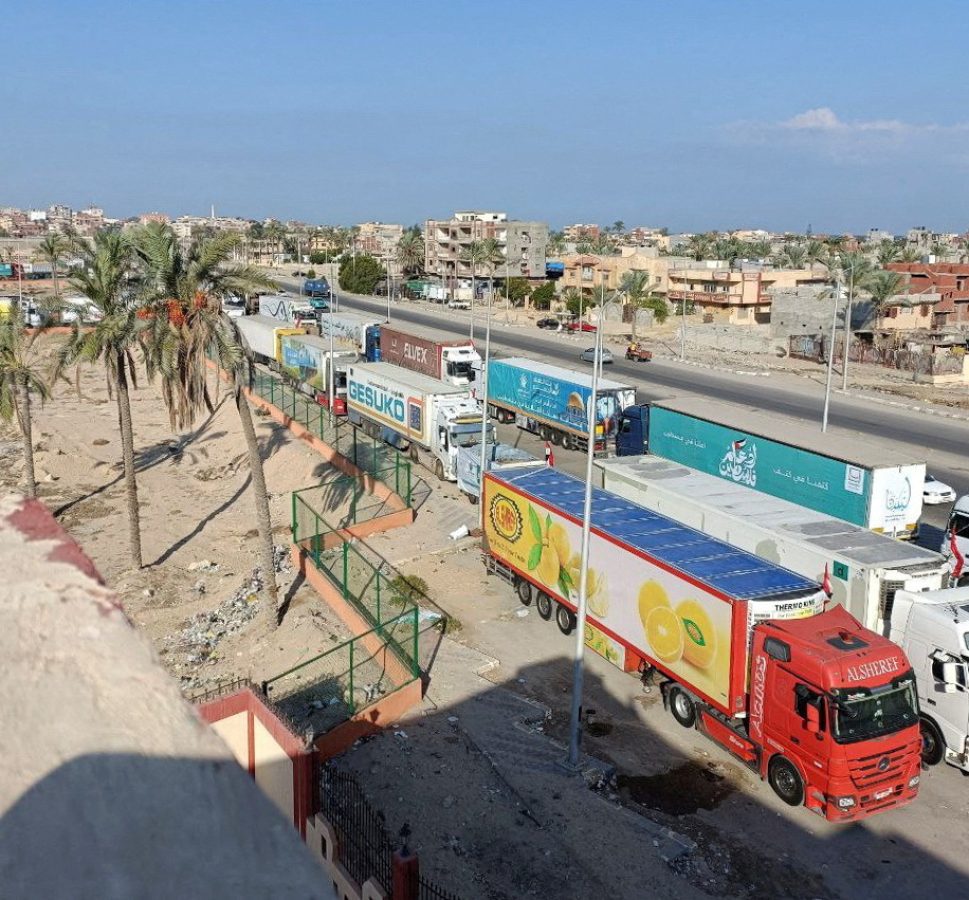
Egypt said on Monday that Israel was not cooperating with delivery of aid into Gaza and evacuations of foreign passport holders via the only entry it does not wholly control, leaving hundreds of tonnes of supplies stuck.
Cairo says the Rafah crossing, a potentially vital opening for desperately-needed supplies into the Israeli-besieged Palestinian enclave, is not officially closed but is inoperable due to Israeli air strikes on the Gaza side.
As Israel’s bombardment and siege of Gaza has intensified, the territory’s 2.3 million residents have been left without power, pushing health and water services to the brink of collapse, with fuel for hospital generators running low.
“There is an urgent need to alleviate the suffering of Palestinian civilians in Gaza,” Egypt’s Foreign Minister Sameh Shoukry told reporters, adding that talks with Israel had not been fruitful.
“Until now the Israeli government has not taken a position on opening the Rafah crossing from the Gaza side to allow the entrance of assistance and exit of citizens of third countries.”
U.S. officials were still hoping that Rafah would operate for a few hours later on Monday, White House spokesman John Kirby said, noting that earlier hopes had been “dashed”.
Gazans have been under siege since Israel launched its most intense bombardment and blockade ever following a devastating cross-border assault by Islamist Hamas militants on Oct. 7.
Hundreds of thousands of Palestinians have been displaced within Gaza, with some taking cars and suitcases south towards the Rafah crossing but others heading back north after failing to find refuge.
“On our way to the crossing they shelled Rafah Street and we started screaming,” said one resident near the crossing, Hadeel Abu Dahoud. “Nowhere is safe in Gaza.”
DISPLACEMENT FEARS
Like others, Egypt has spoken out against any mass exodus of Gaza residents, reflecting deep Arab fears that the latest war could spark a new wave of permanent displacement for Palestinians from lands where they have sought to build a state.
Early on Monday, two Egyptian security sources had told Reuters a temporary ceasefire in southern Gaza to last several hours had been agreed to facilitate aid and evacuations at Rafah.
However, Egyptian state TV later quoted a unnamed, high-level source as saying that no truce had been agreed. Hamas official Izzat El-Reshiq told Reuters that reports of a deal to open the crossing were untrue, and Israel also denied them.
On the ground at Rafah, one source said the Egyptian side of the crossing was ready. Shoukry said Egypt aimed to restore regular access through Rafah, including for Palestinians seeking medical treatment or normal travel.
Hundreds of tonnes of aid from NGOs and several countries were waiting on trucks in the nearby Egyptian town of Al-Arish for conditions to allow entry to Gaza, according to two sources there and a witness.
“We are waiting for the green light for the aid to enter and dozens of volunteers are ready at any time,” a Red Crescent official in northern Sinai said.
Separately, Reuters video showed U.N.-flagged fuel trucks appearing to leave Gaza for Egypt through the Israeli-controlled Kerem Shalom crossing.
Movement of goods and people through Rafah has been tightly controlled under a blockade of Gaza imposed by Israel and Egypt since 2007, and only registered travelers can cross.






